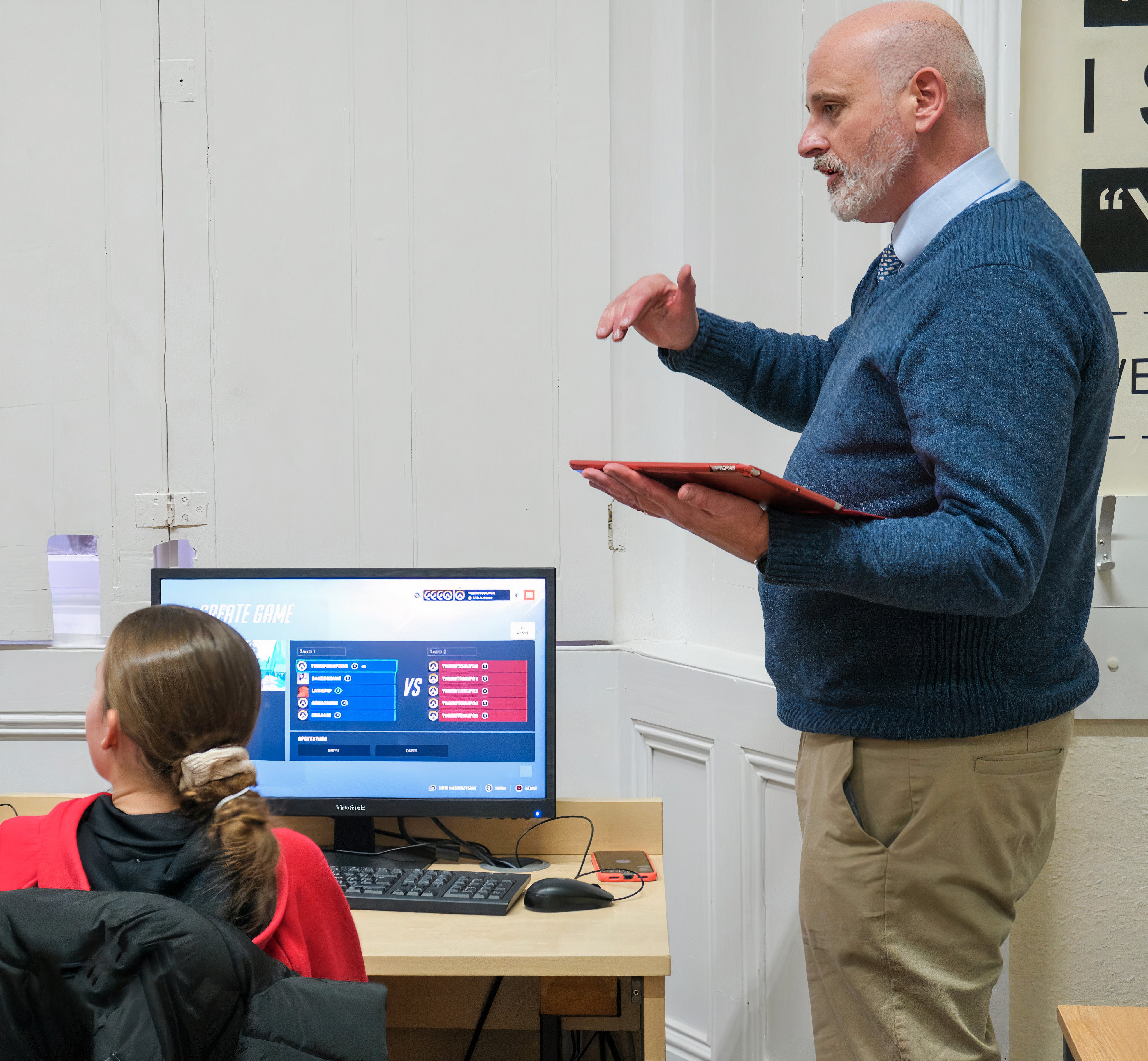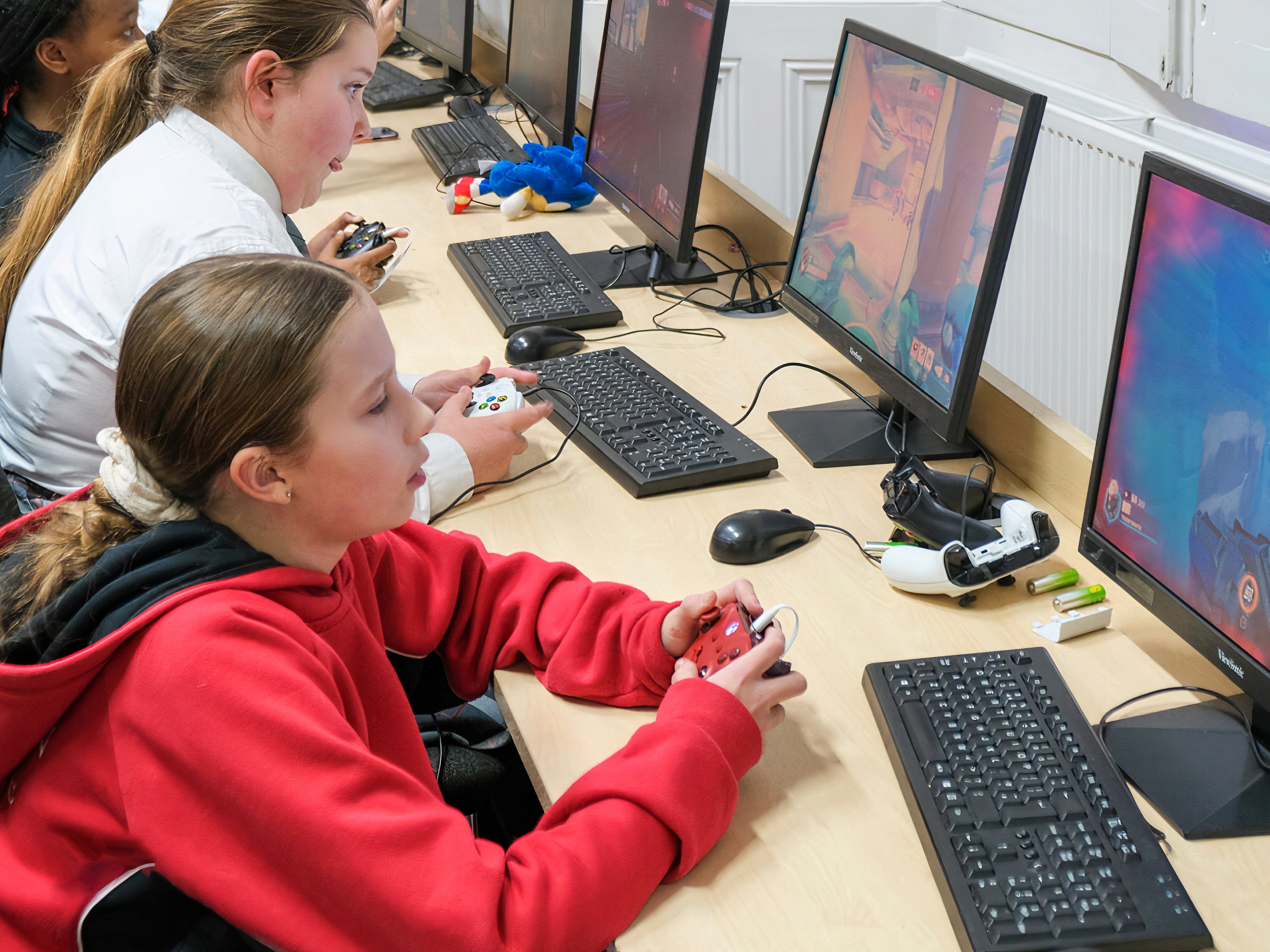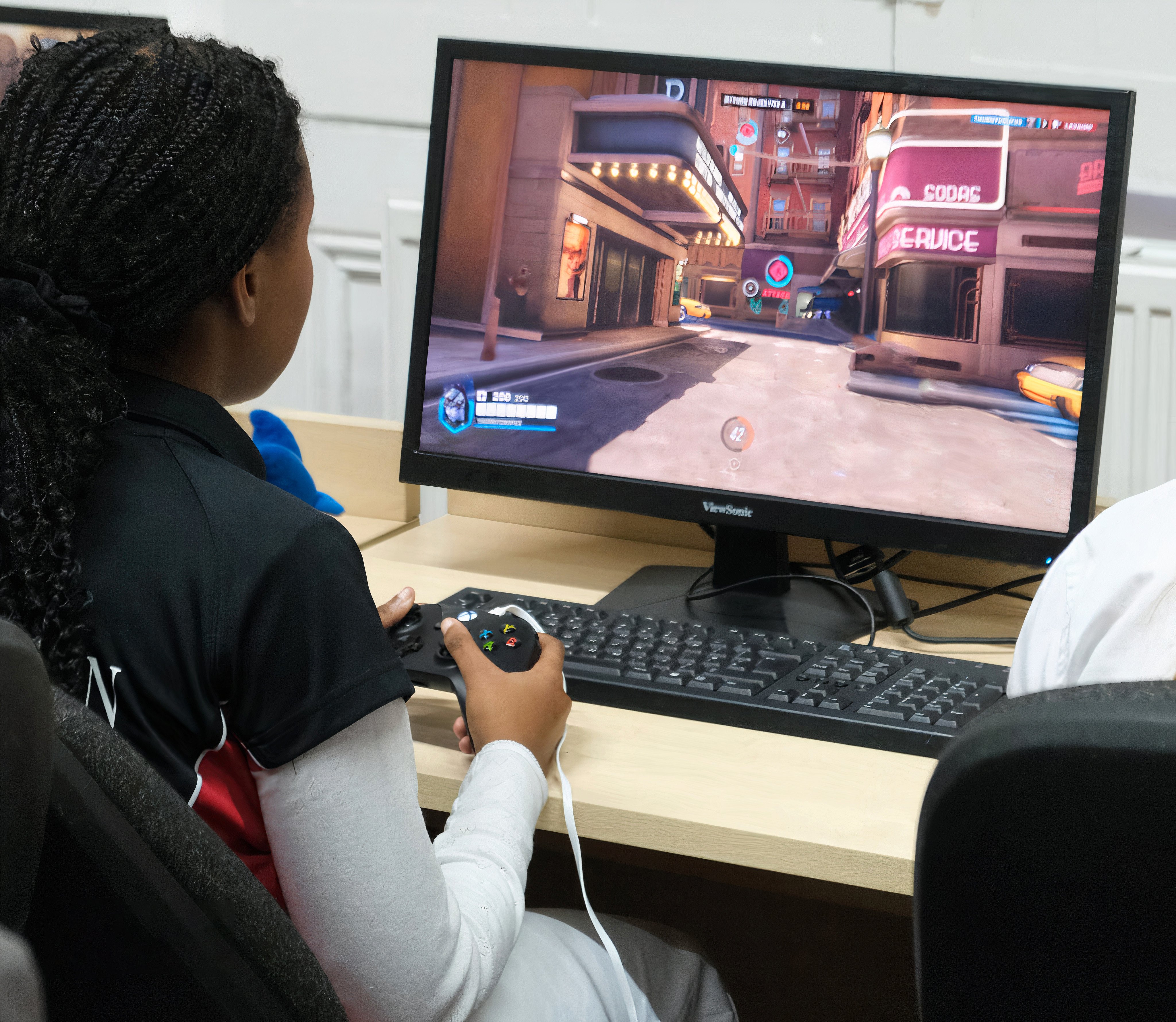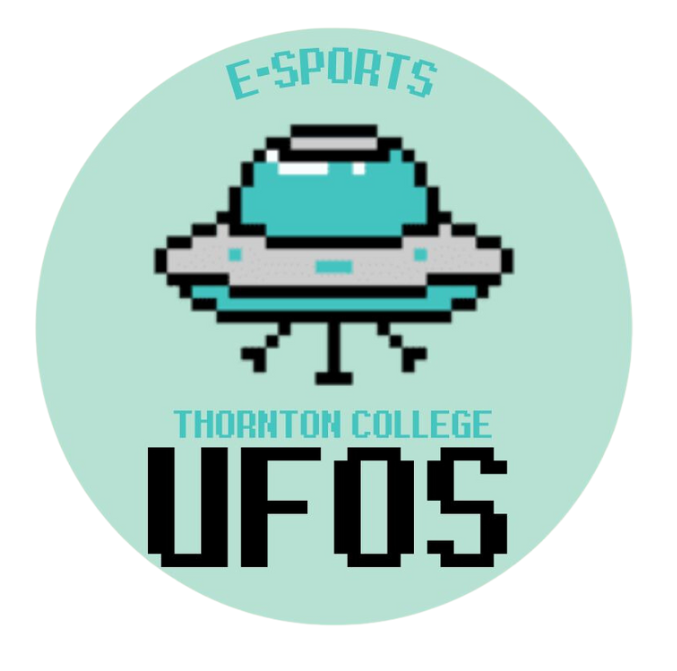11 May 2025
Level Up Your Classroom: How Esports is Driving STEM Engagement and a Sense of Belonging for Girls in Computing at Thornton College




As computing educators, we're constantly seeking innovative ways to engage pupils and equip them with future-ready skills. Beyond the traditional curriculum, finding activities that resonate with their digital world while fostering valuable learning outcomes can be a challenge. This is where esports comes in, offering a dynamic and incredibly relevant avenue for pupil growth, particularly in cultivating a crucial sense of belonging within STEM and computing for girls.
Earlier this year, Thornton College, alongside nine other girls’ schools, dived headfirst into a pioneering national esports pilot programme. Facilitated by British Esports, the UK's leading esports organisation dedicated to growing grassroots participation and promoting diversity, this initiative has been a revelation, particularly in its potential to bridge the gender gap in STEM fields and make computing feel like a place where girls truly belong.
But first, let's demystify esports for those who might be less familiar.
Esports: More Than Just Gaming
Think of esports as competitive video gaming at a highly organised level, much like traditional sports. Players form teams, train with coaches, strategise, and compete in structured tournaments. These events can range from online matches to large-scale spectacles in physical arenas, drawing significant viewership. The games themselves span various genres, from complex strategy games requiring intricate planning and execution to fast-paced simulations demanding rapid reflexes and precise control. And yes, the stakes can be high, with substantial prize pools reflecting the dedication and skill involved.
However, the real power of esports in an educational setting lies in the multifaceted skills it cultivates. It's not just about hand-eye coordination; esports demands and develops:
- Strategic Thinking and Problem Solving: Analysing game states, anticipating opponent moves, and adapting strategies on the fly are core to competitive play – skills directly applicable to computational thinking.
- Teamwork and Communication: Success in most esports titles hinges on seamless collaboration, clear communication under pressure, and understanding team roles. This mirrors the collaborative nature of many computing projects.
- Resilience and Sportsmanship: Dealing with wins and losses gracefully, learning from mistakes, and maintaining composure are vital life skills honed in competitive environments.
- Technical Literacy: Pupils gain a deeper understanding of technology, hardware, software, and online environments – foundational knowledge for computing.
Furthermore, the esports ecosystem extends beyond the players. Opportunities abound for pupils interested in shoutcasting (commentary), event management, marketing, content creation (streaming, video editing, writing), and data analysis – all roles with direct links to computing and media industries, providing diverse entry points for involvement.
Esports: A Catalyst for Girls in STEM and Computing
One of the most exciting aspects of integrating esports into education is its potential to encourage girls into STEM, specifically fostering a strong sense of belonging in computing. Esports naturally emphasises the development of skills critical to computing and other STEM fields: logical thinking, algorithmic strategy, problem decomposition, and technical proficiency. By engaging in activities where these skills are paramount and celebrated, girls can see themselves as capable and successful within a technical context.
Seeing successful female esports players provides powerful role models, challenging outdated stereotypes about gaming and technology being solely male domains. Moreover, engagement in esports can serve as a natural on-ramp to exploring related STEM careers like game development, software engineering, and data science. It provides a relatable and engaging context for understanding the applications of computing. Research increasingly supports the idea that gaming can be a significant factor in sparking girls' interest in these areas, and organisations like British Esports are actively working to create more inclusive spaces within the competitive gaming world, which directly contributes to girls feeling like they belong.
Building the Thornton College UFOs: Cultivating Belonging Through Ownership
When the opportunity arose to form an esports team through the GSA pilot, I gauged the interest of our Year 8 and 9 girls. The response was overwhelmingly enthusiastic! What followed was a remarkable display of pupil initiative and leadership, demonstrating a powerful sense of ownership over their involvement in a technically-oriented activity. The girls didn't just want to play; they wanted to build a programme that was theirs.
Recognising that not all interest lies in competitive play, we ensured there were roles for everyone, deliberately creating multiple avenues for girls to contribute and find their niche within the team structure. Pupils took on responsibilities ranging from marketing and brand design (creating our fantastic "Thornton UFOs" logo!) to writing match reports for the school newspaper and organising fundraising efforts. This distributed leadership and varied involvement helped reinforce that their contributions, technical or otherwise, were valued and essential to the team's success, strengthening their connection to this STEM-adjacent activity.
Their first major project? Securing the necessary gaming equipment. The girls fully embraced this challenge, researching different options, comparing prices, and ultimately presenting a compelling case to our headteacher to request funding from our supportive parent charity, the Friends of Thornton. This process alone provided invaluable lessons in project management, budgeting, and persuasive communication, all while working towards a technical goal that they owned. This hands-on involvement demystified the technology and made it feel accessible and within their control.
With equipment in hand, the focus shifted to preparing for the tournament. Practice sessions became crucial for skill development, team cohesion, and establishing in-game roles. While only five players were needed for each official match, we had fifteen girls regularly attending practices, demonstrating the strong community being built around a shared interest in competitive gaming and technology. We implemented a rotation system during matches to ensure every girl had the chance to represent the school, fostering a sense of inclusion and shared experience. The creation of their unique, UFO-themed team identity further solidified their sense of belonging to this group and, by extension, to the technical and strategic world of esports.
Competing in the pilot tournament against other schools was an invaluable learning experience. Beyond the wins and losses (we finished with a balanced record), the girls refined their teamwork, communication, and conflict resolution skills. Analysing game situations and adapting to unexpected challenges sharpened their strategic thinking and problem-solving abilities in real-time, directly applying computational thinking skills in a dynamic environment. The emotional journey of competition also fostered resilience and self-discipline, with victories boosting confidence and team spirit. These are all highly transferable skills that will benefit them academically and professionally, helping them to see how their abilities developed through esports translate to success in other challenging, technical areas. We even adopted a lovely tradition from our sports teams, offering "three cheers" to our opponents via Teams after each match, promoting positive digital citizenship alongside competition. The enthusiasm generated during the tournament also sparked significant interest from pupils in other year groups, eager to join the team in the future, indicating the growing appeal and sense of community surrounding esports.
The Future is Bright (and Pixelated)
The sustainability and growth of our esports programme are firmly in the hands of the pupils, which is key to fostering their continued sense of ownership and belonging. They are already developing a Minecraft esports tournament for our prep school, designed to enhance problem-solving skills in younger pupils and with the exciting potential for inter-school competitions. This initiative, led by the girls, further reinforces their role as leaders and creators within a technology context. To support future initiatives and equipment upgrades, they are also creating and selling UFO-themed merchandise as a fundraising effort, demonstrating entrepreneurial skills alongside their technical interests.
Looking ahead, we are exploring how to formally integrate healthy gaming habits and digital citizenship discussions from our esports activities into the school's broader digital literacy and online safety curriculum. This embedding within the core curriculum will help normalise engagement with gaming and technology for all pupils and further reinforce the educational value of esports.
Consider Launching Your Own Esports Initiative – Foster Belonging in STEM
Our experience at Thornton College has been overwhelmingly positive. Esports provides a unique and engaging platform to develop a wide range of skills crucial for success in the 21st century, many of which align directly with computing and STEM education. Critically, it fosters teamwork, strategic thinking, communication, and problem-solving in a context that genuinely excites pupils and, through active participation and ownership, helps girls feel a strong sense of belonging within the world of computing and STEM. Beyond the skills, it builds a powerful sense of community, boosts confidence, and is a powerful tool for sparking and nurturing interest in STEM fields, particularly among girls.
If you're a computing teacher looking for a fresh and impactful way to engage your pupils and prepare them for the future, while also actively working to increase girls' sense of belonging and participation in your subject, I strongly encourage you to consider exploring the possibilities of esports in your school. The potential for learning, growth, and fostering a truly inclusive computing environment is immense.
Chris Lovell
Head of computing, Thornton College




